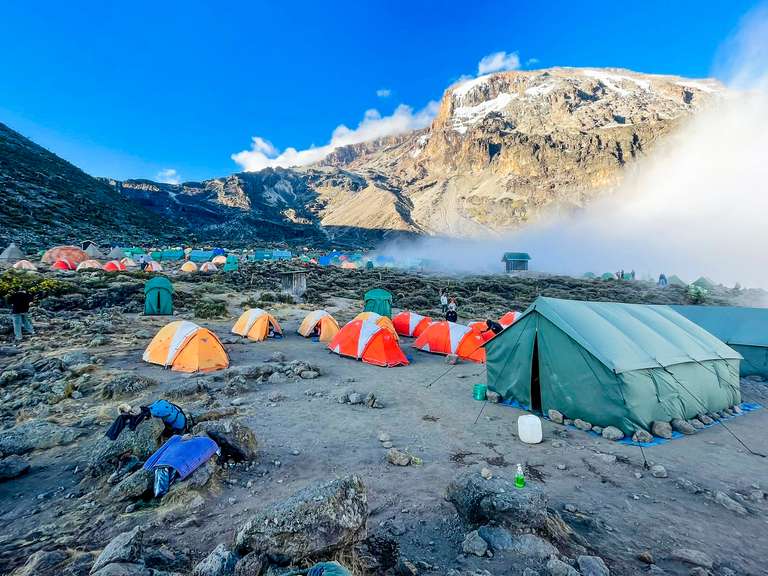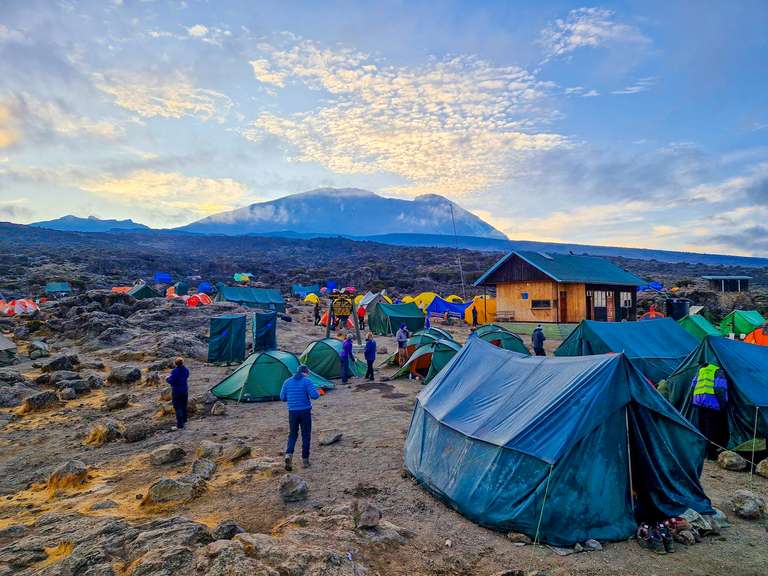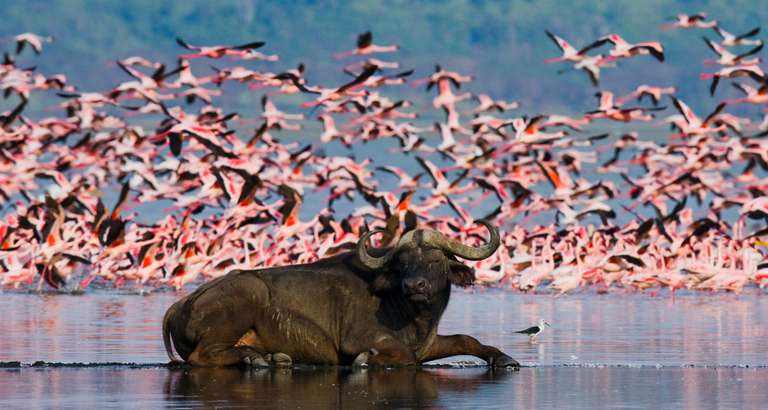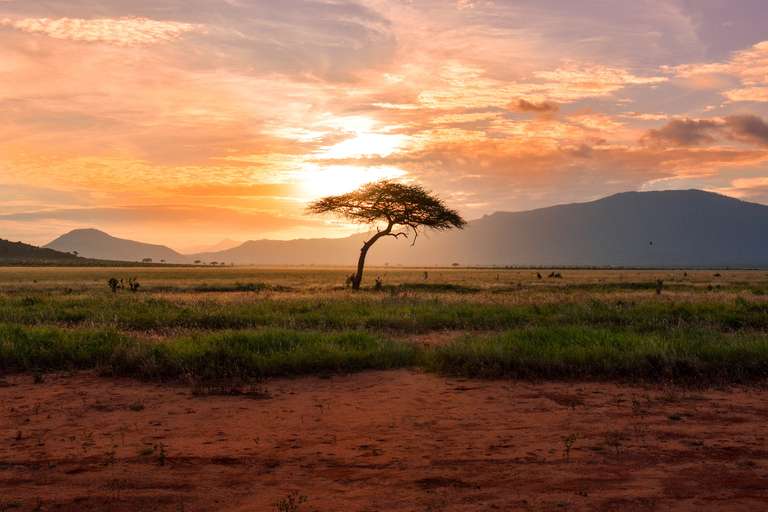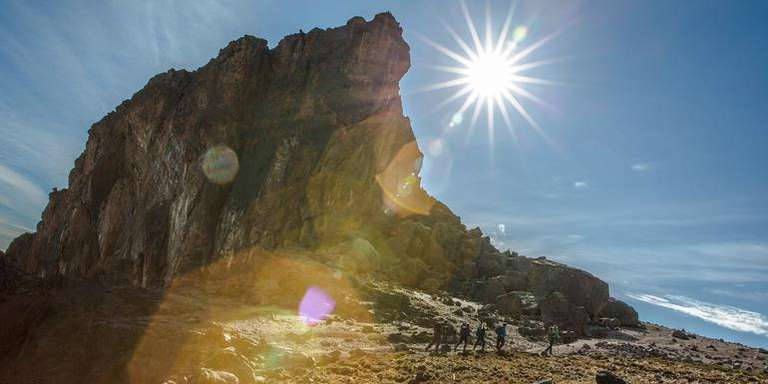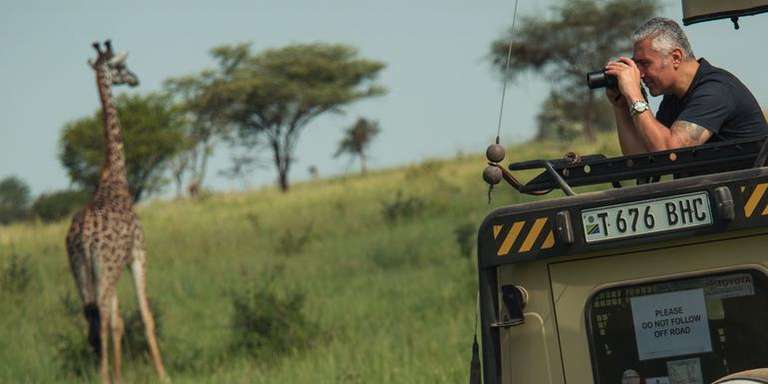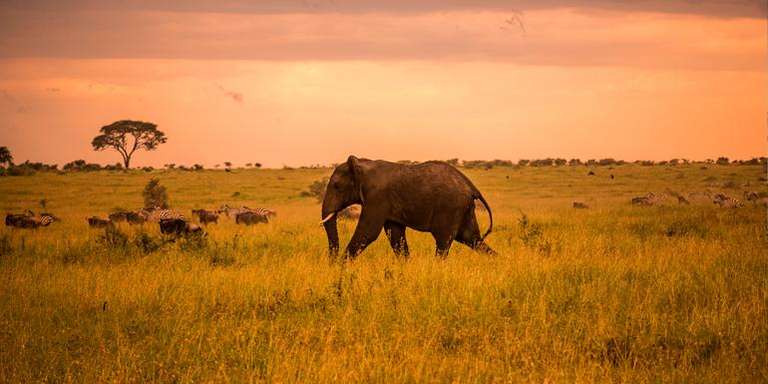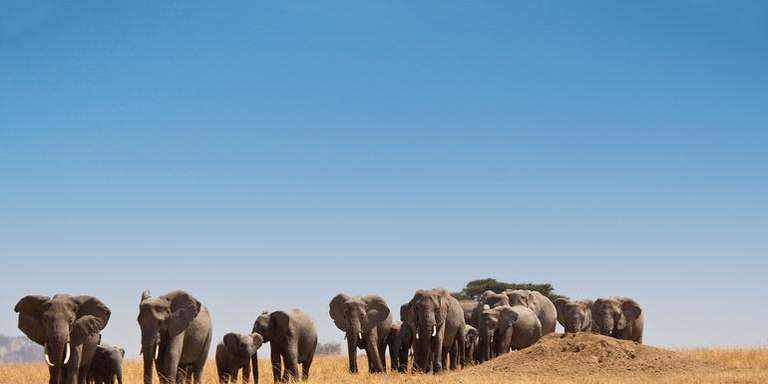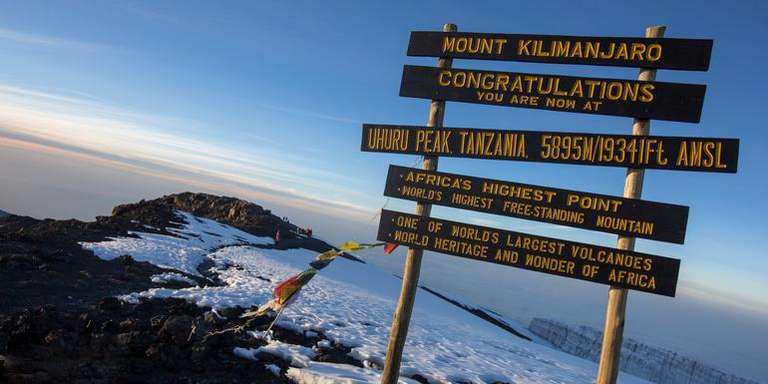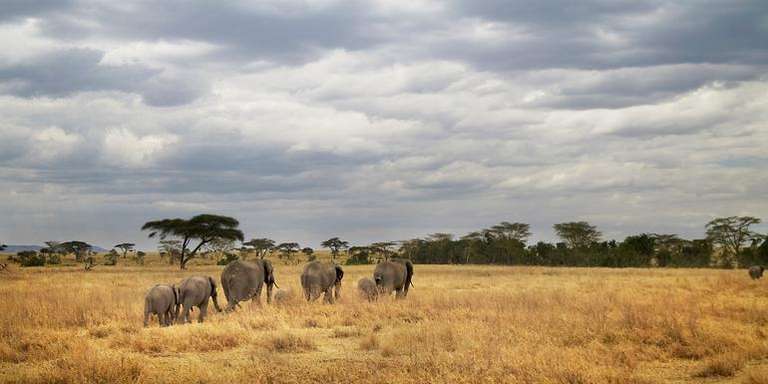Winter in Tanzania: Banking The Perks of Dry Season

- Sim0r
- From Germany
- Sim0r
- From Germany
- Bhumika Sultania
- From India
- Liam Dubois
- From Belgium
Weather and Temperature in Tanzania During Winter
Tanzania's winter temperatures are the coolest and driest of the year, with July being the coldest month. Temperatures vary depending on which part of the country you are visiting, and it rarely gets extremely cold, except at night or in high-elevation areas. In the northern regions, such as Serengeti National Park and the Ngorongoro Crater, temperatures are the coolest, hovering between 20°C and 27°C during the day. At night the mercury ranges between 9°C and 15°C. Due to its higher elevation, Arusha is the coldest city in Tanzania, with an average daytime temperature of around 22°C at the coolest time of year. The southern and coastal regions such as Dar es Salaam and Zanzibar see temperatures ranging from 25°C to 30°C during the day. The lack of rain in the winter also means less humidity, making it more comfortable to be outdoors. Strong anti-trade winds make coastal areas pleasantly breezy.
| June | July | August | September | |
| Avg High | 28°C (83°F) | 28°C (83°F) | 28°C (83°F) | 29°C (85°F) |
| Avg Low | 22°C (72°F) | 21°C (70°F) | 22°C (72°F) | 22°C (72°F) |
| Rainfall (mm) | 45 | 25 | 25 | 25 |
For a more detailed seasonal overview, check out our guide on the best time to visit Tanzania.
Other Related Articles:
Tanzania in June
Tanzania in July
Tanzania in August
Why Visit Tanzania in Winter?

There are plenty of reasons to take a trip to Tanzania in winter. Here are some of them:
-
Not only does the pleasant weather make a trip to Tanzania in winter a comfortable experience, but it is also one of the best times to go on a safari. Sparse vegetation owing to dry weather conditions, makes it easier to spot wildlife. Moreover, this is the time of the year when animals congregate near water sources.
-
Popular destinations are not as crowded as during the peak season between December and February. This means you will enjoy the Tanzania tour at your own pace and in relative peace and quiet.
-
While winter may be deemed less safe in countries with cold and harsh conditions, Tanzania's winter, being only the dry season, is preferable for mountain climbing to summer. Climbing Mount Kilimanjaro, for example,is a popular activity all year round, but the dry, cooler winter months make the climb safer and more enjoyable.
-
The dry season also means fewer mosquitoes, which prefer humid conditions. You will encounter fewer mosquitoes during the winter months.
If you are considering a trip to Tanzania, we recommend looking at our Tanzania guide for a clear overview of the country.
Top 3 Destinations in Tanzania During Winter
If you are planning to visit Tanzania in winter, you are in for a treat. The dry weather conditions offer wonderful holiday experiences, from the mountains to coasts to savannas. Here are some of the top destinations to visit in Tanzania.
1. Serengeti National Park

Winter in Tanzania corresponds with the beginning of the Great Wildebeest Migration in the Serengeti plains. With temperatures hovering in their mid-twenties and low humidity levels, this is a great time to tour the Serengeti National Park and witness the spectacle.
Major attraction: July is when the migration is in the north of the Serengeti and moving toward Maasai Mara in Kenya.
Pros:
- Wildlife sightings are at their best as the grasses and bush are at their least dense during the dry season.
- Winter is the best time of year to observe the great wildebeest migration.
- Compared to other times of the year, temperatures dip slightly from June to September, making it more comfortable to be outdoors during the day.
- Humidity is low, so there are fewer pesky mosquitoes and insects.
Cons:
- This is a busy period, so you will need to book your accommodation well in advance.
- Prices can be higher due to the high number of tourists.
- Temperatures can get quite chilly in the early mornings and evenings.
2. Zanzibar
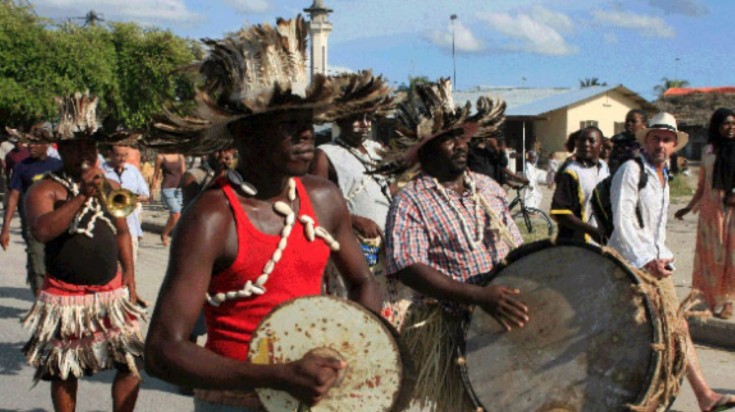
Visit the island of Zanzibar and enjoy watersports, diving, and snorkeling while the temperatures are pleasantly warm, reaching up to 30°C during the day and around 20°C at night.
Major attraction: In August, you can be part of the Eid al-Fitr celebrations, which mark Islam’s holy month of fasting or Ramadan.
Pros:
- The weather is reliably warm and dry during this time.
- Besides Eid al-Fitr, several other festivals take place during this time of year, such as the Zanzibar International Film Festival and the Mwaka Kogwa festival.
Cons:
- This is a busy period in Zanzibar, so you will need to book your accommodation well in advance.
- Hotel rates can be higher due to high demand.
3. Mount Meru
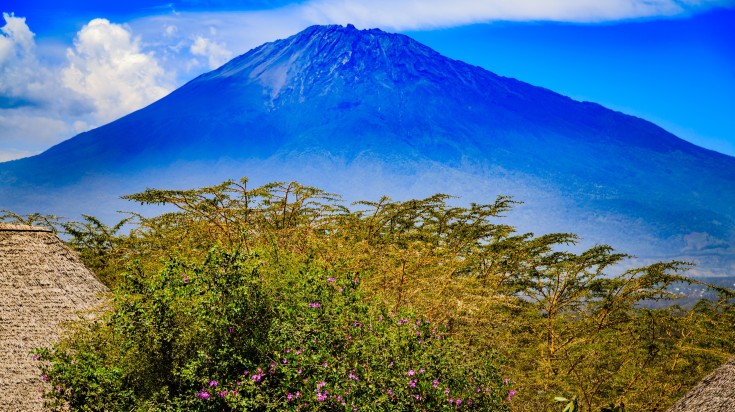
Mount Kilimanjaro may be the most obvious choice to climb during winter, but why not take advantage of the good weather to tackle the second-highest peak in Tanzania, Mount Meru? Temperatures can vary due to elevation, but they typically hover in their mid-twenties.
Major attraction: The mountain is located in beautiful Arusha National Park, where you also have a good chance of seeing wildlife such as giraffes, elephants, and buffaloes.
Pros:
- You are least likely to encounter bad weather, making the trek less risky and more enjoyable.
- Compared to Mount Kilimanjaro, Mount Meru is less crowded.
- Clear days offer unforgettable views of Mount Kilimanjaro and the Meru Crater from the summit.
Cons:
- This is a busy period, and you will need to book your accommodation well in advance.
- Tour and accommodation prices can be higher during this time.
3 Things to Do in Tanzania During Winter
When planning things to do during your trip to Tanzania in winter, concentrate on activities favorable to the weather conditions. Consider more adventurous camp-style accommodations, perfect for pleasant warm conditions. Clear skies and minimal rain means excellent views from aerial vantage points, whether from a hot air balloon or a mountain summit.
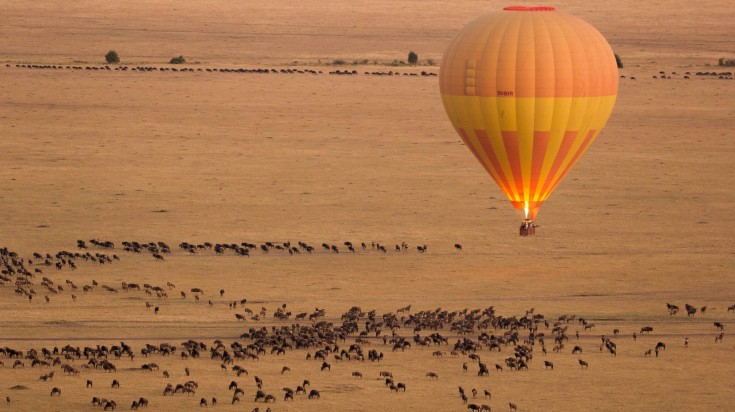

- Take a hot air balloon ride: Silently soaring over the Tanzanian landscape in a hot air balloon is a memorable activity that is best enjoyed during the clear and dry winter months. A trip to Serengeti National Park and the Ngorongoro Crater is ideal to enjoy a hot air balloon ride. Clear skies create good visibility for taking in the stunning landscape at sunrise, while sparse vegetation during the dry season makes herds of wildlife moving and congregating below more easily to spot.
- Join an adventure camping safari: Tanzania is the best time of year to enjoy an African camping experience. Not only is this an affordable activity, but it also brings you closer to nature and offers the flexibility to move through different areas and track wildlife migrations. Lake Manyara, Serengeti National Park, and Ngorongoro Crater are popular locations for mobile safaris.
- Go hiking and trekking: One of the most popular activities to enjoy in winter in Tanzania is trekking and hiking. Temperatures are more comfortable for a strenuous activity, while clear skies offer panoramic vistas. Climbing Mt. Kilimanjaro is one of the best experiences to have during this time of year, but the route can be crowded. But there are many other hikes and treks to consider, like the volcanic craters of Olmoti, Empakai, and Ol Doinyo Lengai and the smaller mountains of Meru and Udzungwa.
Whether you are in search of an adventure or a relaxing getaway in Tanzania, traveling to the country during the winter season is a smart choice. The weather conditions are excellent for trekking, camping, and wildlife safari. Winter in Tanzania is also one of the best times to visit the Serengeti plains to witness the annual wildebeest migration.
Make your winter experience in Tanzania unique and special by customizing your trip to suit your wishes. If you need help planning a customized trip to Tanzania, reach out to our local travel experts, who can devise a tailored itinerary for you.

